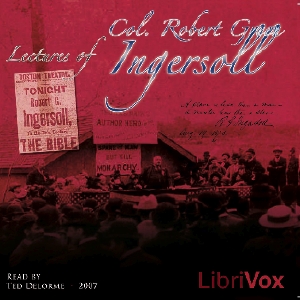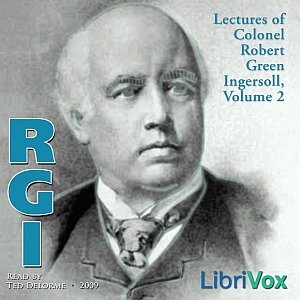- Zarathustra's Prologue
- Part 1: I. The Three Metamorphoses
- Part 1: II. The Academic Chairs of Virtue
- Part 1: III. Backworldsmen
- Part 1: IV. The Despisers of the Body
- Part 1: V. Joys and Passions
- Part 1: VI. The Pale Criminal
- Part 1: VII. Reading and Writing
- Part 1: VIII. The Tree on the Hill
- Part 1: IX. The Preachers of Death
- Part 1: X. War and Warriors
- Part 1: XI. The New Idol
- Part 1: XII. The Flies in the Market-place
- Part 1: XIII. Chastity
- Part 1: XIV. The Friend
- Part 1: XV. The Thousand and One Goals
- Part 1: XVI. Neighbour-Love
- Part 1: XVII. The Way of the Creating One
- Part 1: XVIII. Old and Young Women
- Part 1: XIX. The Bite of the Adder
- Part 1: XX. Child and Marriage
- Part 1: XXI. Voluntary Death
- Part 1: XXII. The Bestowing Virtue
- Part 2: XXIII. The Child with the Mirror
- Part 2: XXIV. In the Happy Isles
- Part 2: XXV. The Pitiful
- Part 2: XXVI. The Priests
- Part 2: XXVII. The Virtuous
- Part 2: XXVIII. The Rabble
- Part 2: XXIX. The Tarantulas
- Part 2: XXX. The Famous Wise Ones
- Part 2: XXXI. The Night-Song
- Part 2: XXXII. The Dance-Song
- Part 2: XXXIII. The Grave-Song
- Part 2: XXXIV. Self-Surpassing
- Part 2: XXXV. The Sublime Ones
- Part 2: XXXVI. The Land of Culture
- Part 2: XXXVII. Immaculate Perception
- Part 2: XXXVIII. Scholars
- Part 2: XXXIX. Poets
- Part 2: XL. Great Events
- Part 2: XLI. The Soothsayer
- Part 2: XLII. Redemption
- Part 2: XLIII. Manly Prudence
- Part 2: XLIV. The Stillest Hour
- Part 3: XLV. The Wanderer
- Part 3: XLVI. The Vision and the Enigma
- Part 3: XLVII. Involuntary Bliss
- Part 3: XLVIII. Before Sunrise
- Part 3: XLIX. The Bedwarfing Virtue
- Part 3: L. On the Olive-Mount
- Part 3: LI. On Passing-by
- Part 3: LII. The Apostates
- Part 3: LIII. The Return Home
- Part 3: LIV. The Three Evil Things
- Part 3: LV. The Spirit of Gravity
- Part 3: LVI. Old and New Tables
- Part 3: LVII. The Convalescent
- Part 3: LVIII. The Great Longing
- Part 3: LIX. The Second Dance-Song
- Part 3: LX. The Seven Seals
- Part 4: LXI. The Honey Sacrifice
- Part 4: LXII. The Cry of Distress
- Part 4: LXIII. Talk with the Kings
- Part 4: LXIV. The Leech
- Part 4: LXV. The Magician
- Part 4: LXVI. Out of Service
- Part 4: LXVII. The Ugliest Man
- Part 4: LXVIII. The Voluntary Beggar
- Part 4: LXIX. The Shadow
- Part 4: LXX. Noon-Tide
- Part 4: LXXI. The Greeting
- Part 4: LXXII. The Supper
- Part 4: LXIII. The Higher Man
- Part 4: LXXIV. The Song of Melancholy
- Part 4: LXXV. Science
- Part 4: LXXVI. Among Daughters of the Desert
- Part 4: LXXVII. The Awakening
- Part 4: LXXVIII. The Ass-Festival
- Part 4: LXXIX. The Drunken Song
- Part 4: LXXX. The Sign
Friedrich Wilhelm Nietzsche (1844–1900) was a nineteenth-century German philosopher. He wrote critical texts on religion, morality, contemporary culture, philosophy and science, using a distinctive German language style and displaying a fondness for aphorism. Nietzsche's influence remains substantial within and beyond philosophy, notably in existentialism and postmodernism.
Thus Spake Zarathustra (Also sprach Zarathustra), is a work composed in four parts between 1883 and 1885. Much of the work deals with ideas such as the "eternal recurrence of the same", the parable on the "death of God", and the "prophecy" of the Overman, which were first introduced in The Gay Science. Described by Nietzsche himself as "the deepest ever written", the book is a dense and esoteric treatise on philosophy and morality, featuring as protagonist a fictionalized Zarathustra. A central irony of the text is that the style of the Bible is used by Nietzsche to present ideas of his which fundamentally oppose Judaeo-Christian morality and tradition. (Summary from Wikipedia)
Thus Spake Zarathustra (Also sprach Zarathustra), is a work composed in four parts between 1883 and 1885. Much of the work deals with ideas such as the "eternal recurrence of the same", the parable on the "death of God", and the "prophecy" of the Overman, which were first introduced in The Gay Science. Described by Nietzsche himself as "the deepest ever written", the book is a dense and esoteric treatise on philosophy and morality, featuring as protagonist a fictionalized Zarathustra. A central irony of the text is that the style of the Bible is used by Nietzsche to present ideas of his which fundamentally oppose Judaeo-Christian morality and tradition. (Summary from Wikipedia)
There are no reviews for this eBook.
There are no comments for this eBook.
You must log in to post a comment.
Log in











